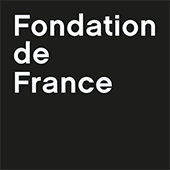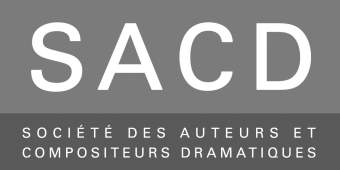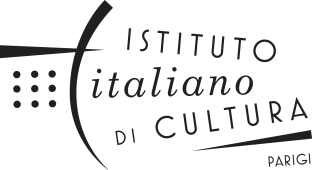Claudia Triozzi
Pour rien mais dans le bon sens
novembernov 21 – 23
Design, performance, images, sound recordings, texts and creation of the space Claudia Triozzi. Stage manager Sylvain Labrosse. Image editing Claudia Triozzi assisted by Elisabeth Banom and Sylvain Labrosse. Sound design Marc Baron using Claudia Triozzi's original materials. Music Haco. Sound engineer Félix Perdreau. Construction Sylvain Labrosse and Adrien Castillo. Space modelling Gabriel Rocha Oliveira.
La Ménagerie de verre and the Festival d'Automne à Paris are co-producers of this show and co-present it.
Delegated production La Ménagerie de verre
Coproduction Festival d'Automne à Paris; Les Bazis - Arts vivants en Couserans
The creation of this piece benefited from workshops with the residents of the Fernand Widal hospital, a residency offered by the Festival d'Automne as part of its partnership with the Assistance publique - Hôpitaux de Paris; the Ehpad - residence de la Vallée du Volp, Sainte-Croix-Volvestre with Les Bazis; l'Ehpad Cousin de Méricourt - Résidence en autonomie with Anis Gras - Le lieu de l'Autre; l'Ehpad Mutualiste Les Hortensias de Dijon with Le Dancing CDCN Dijon Bourgogne-Franche-Comté as part of the accueil-studio scheme - Ministry of Culture.
Thanks to Laboratoires d'Aubervilliers
Co-produced by la Ménagerie de verre; Festival d'Automne à Paris
La Ménagerie de verre is supported by Dance Reflections by Van Cleef & Arpels
With the support of the Institut Culturel Italien de Paris
Artistic residencies at AP-HP are organised with the support of
the support of the Fondation de France and the SACD
In Pour rien mais dans le bon sens, Claudia Triozzi brings us a performative experience which pursues the “transmission through the body” approach that she has been exploring since 2011. She was able to further this research as part of a hospital residency made possible by the Festival d'Automne.
With the complicity of a group of elderly people, Claudia Triozzi establishes a choreographic performative language in which virtuosity and endurance give way to the potential of these bodies for whom there is a big gap between themselves and the stage. Nourished by the gestural expressions of the residents of different geriatric establishments and from exercises borrowed from specially-adapted physical activities, the choreographer develops moments or instances of common creativity and stories to be shared. In Pour rien mais dans le bon sens, her aim is to generate a “vacillating presence” at the intersection between space, sound, bodily matter and playful objects from everyday life. Claudia Triozzi draws upon the notions of shadow, reflection and echo. Together, they enable her to explore the numerous possibilities of bringing to the stage “traversed bodies”, which are not limited by age or the artifices of theatricality.
In the same place



